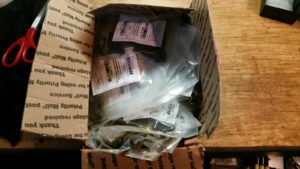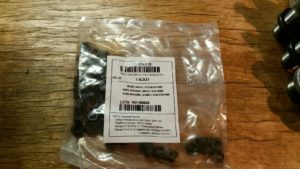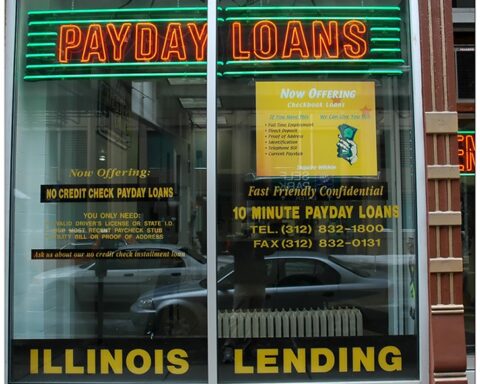Here at Men of the West, we believe in resilience. We promote spiritual resilience: that deep and abiding faith in Christ that helps us to overcome the world. We work toward physical resilience: strength and health that help us to protect and provide for those whom God has placed in our care. We also believe in financial resilience, or anti-fragility: the ability to survive financial shocks in uncertain times.
Part of that financial resilience, as has been discussed here before, is eliminating the slavery of debt. Part can be providing inexpensive and healthy food for your family through gardening. But another part, and an important one, is building a business of your own.
In addition to the financial rewards, building your own business will force you to learn skills that are useful everywhere. You’ll learn to plan and to serve others. You’ll learn to manage cash flows and to deal with unreasonable people. Keeping your eyes open for opportunities will become second nature. There is nothing like having your own money on the line to interest you in mastering new skills. It’s also a great way to make your hobbies pay for themselves.
But starting a business, they say, can be hard. You’ve got to have startup capital. You need to purchase a professionally-prepared business plan. You’ve got to have an MBA and licenses and certificates. They’re wrong. While starting a company that will completely provide for your family from day one is both a challenge and a risk, starting a business is as simple as offering your used tires for sale on Craigslist.
But it’s good to start with a plan. So today I’m going to share with you the simplest, most profitable business plan ever created. It can form the basis of your own business, or may just wind up being a small part of it. But it will always be a profitable part so long as you use your head. And once you internalize it, you’ll never lack for ways to apply it.

The business plan is this: Buy Pies, Sell Slices.
That’s it. It’s unfathomably simple, but it forms the basis of every retailer from Walmart right down to your corner jeweler. Buy in bulk, sell in small chunks at a higher price, pocket the difference.
“But you’re just a middle man!”, one could argue. While you are a middleman*, you are not just a middleman. You are a seller of convenience, providing useful products to your customers in the amounts they need. The factory wants to sell in packs of 5000; your customer wants to buy in packs of 50. You make them both happy and make a profit to boot.
Admittedly, business is not just a matter of buying any old pie you can find. This is where the true challenge (and risk) arises. You’ve got to find something to sell, and you don’t want to wind up with a garage full of rotting pies. So here are a few simple rules that can help reduce the risks and increase the returns of your own business.
Rule 1: Buy items you’ll use anyway, so if you have some left over, nothing goes to waste.
True story: a few years ago my lovely wife was in Boulder, Colorado, visiting our grandkids. She popped in to Walmart for some cough medicine and came out with 50 or so kid-sized Colorado Buffalo football jerseys. The jerseys were on clearance for a dollar each, and she cleaned the whole rack out. Lots of those sold on ebay for a 10x return. Free money is where you find it.
But what if they hadn’t sold? What if the Colorado Buffaloes were to become so hated that no one ever again purchased their official, NCAA-licenced apparel? That’s the danger. But as foster parents, it is not unusual for us to send a kid to his Grandma’s house for a visit in one set of clothes only to receive him back three hours later in a completely different set**. We lose a ton of kid clothes and are constantly buying them anyway. If it takes a couple years for Grandma to steal 50 Colorado Buffalo jerseys of various sizes and styles, it’s no more a loss to us than the clearance t-shirts we buy anyway.
You may not want to buy and hold four dozen kid-sized football jerseys, because your situation is different from mine. But there is something you can do the same with. Keep your eyes open for opportunities to stock up on what you use anyway, then sell off a few to pay for the whole batch.

Rule 2: Buy items that are most useful but hardest to find in small amounts.
The seater plug in a reloading die is usually held in place by a ¼-28 round nut. These nuts occasionally get lost*** or stripped. They also cost $3 apiece to replace, when you can find them. But a hex nut will hold that plug in place just as well. The factory sells very nice ¼-28 hex nuts in cases of 5000 (100 plastic-wrapped packs of 50) for less than a penny a nut. I sell those packs of 50 individually for $8.95 postpaid, or about a $6 profit on each.
Your average reloader doesn’t want to pay $3 plus shipping for a replacement nut. He also does not need 5000 nuts: a pack of 50 will likely last him his entire life. He’s more than happy to have you ship him a lifetime supply for what he would normally pay to replace three lost nuts.
Well, he’s more than happy to have me ship them. You go find something else. Look around your own hobbies. There are plenty of opportunities there.
Rule 3: Buy items half the world needs and half the world is trying to get rid of.
The perfect example of this market is used books. Books are everywhere and people can’t get rid of them fast enough. Free pie. But still people buy millions of books every year – that’s a lot of slices.
A few years ago, you could go to your local Friends of the Library sale and get grocery bags full of used books for $3 each. If you shopped wisely, you could get 3 or 5 bucks apiece for them on Amazon. If you bought Sci Fi paperbacks, you could sell the leftovers to bookstores in bulk for .50 each, still a 5x return on your money. That easy money is the reason this market is saturated with small sellers today****. But there are other such markets out there. Look at the markets you take part in with new eyes. Is there some way you could become a seller instead of a buyer?
Buy Pies, Sell Slices may not be your whole business. It may not even be the biggest part of your business. But you can start your own business with nothing more than that philosophy, then grow it as your time and interests allow. The point is to get started building something of your own.
Times are changing. The future is uncertain. Having your own business, even if it’s just an extension of one of your hobbies, will give you a little more resilience, a little more freedom, and will help you build a few more skills. Teach them to your sons.
And who knows, if you do it right, you could build a family business that can last for generations.
* As is everyone who offers you something direct to eliminate the middleman.
** usually a pair of stained and torn pajamas that are three sizes too small.
*** I believe they slip home to a distant planet, like the ball point pens in Hitchhiker’s Guide to the Galaxy
**** Which is why I wrote a book on how to do it, even though I don’t do it anymore. Writing books is also a good business plan.

Buy Pies, Sell Slices
2 Comments
Leave a Reply
Latest from Finances

Crisis Looms – YT Interview of Neil Howe
We have discussed generations and the Strauss-Howe theory of their operation quite often on these pages, but it has been a few years since we really addressed that here. Here, we link

Apostolic Thought vs Talmudic Thought Part 1: Making Money vs Getting Money
Henry Ford in his tiny masterpiece “The International Jew – The World’s Foremost Problem” has a great way of explaining the differences between acquiring money honestly (Christian), and acquiring it dishonestly (Talmudic).

From Debtors to Renters: A Dialogue on the Great Reset
Editor’s note: The following brief discussion appeared in a private forum. It was prompted by the two articles linked below. China’s population may start to shrink this year, new birth data suggest

The Fraud of Insurance
Editor’s Note: Our friend, Den Blonde Ulven, offers another thought-provoking post. Recently, when discussing the nature of banking, and particularly usury, with a libertarian friend of mine, the notion of finance distorting

Universal Basic Bait and Switch
The enemy does this thing, where they drop little nuggets of truth from their plan into the narrative in order to get people softened up on their idea. It’s called Predictive Programming.




5
3.5